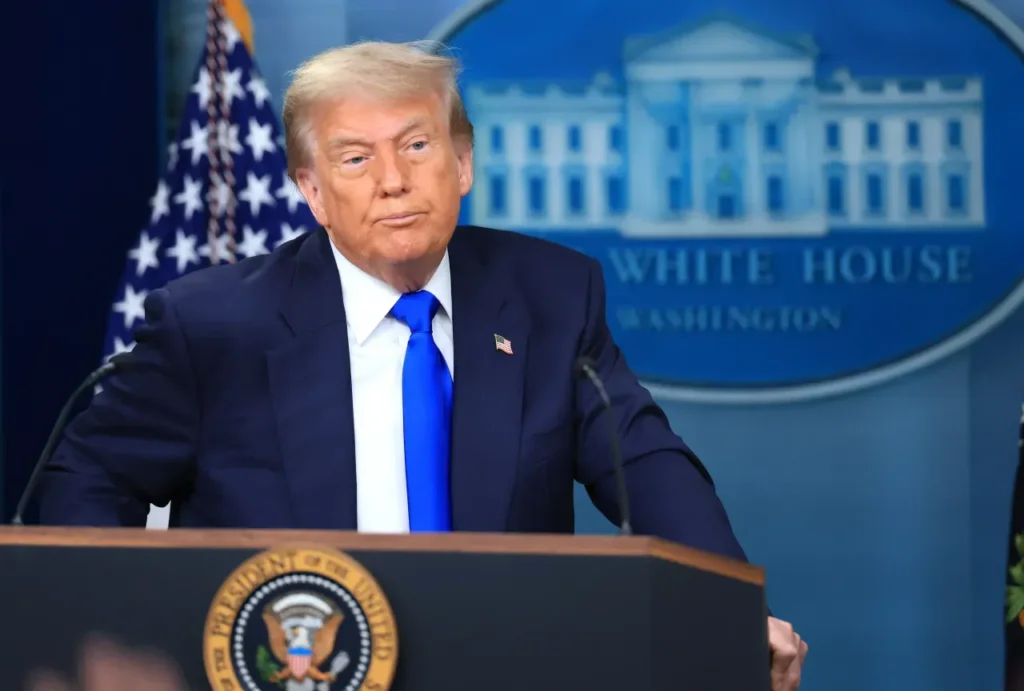Several leading media organizations have voiced strong opposition to a proposal by Donald Trump to restrict visas for overseas journalists. The groups argue that such a move would undermine press freedom, limit global reporting, and harm the United States’ image as a champion of free speech.
Reports suggest that the Trump campaign is considering policies that would make it harder for international journalists to obtain or renew visas to work in the United States. The proposal has raised alarms within the global press community, which sees it as an attempt to restrict critical reporting and reduce foreign coverage of U.S. politics, business, and society.
Advocates for media freedom stress that journalists play a vital role in holding governments accountable, and any restrictions on their ability to report freely could have long-term consequences. A coalition of media groups released a joint statement calling on Donald Trump to abandon the plan, noting that such restrictions would set a dangerous precedent at a time when press freedom is already under pressure in many parts of the world.
Press advocates argue that the United States has long been viewed as a safe and open environment for journalism, attracting reporters from across the globe. Limiting overseas journalist visas would not only impact coverage of U.S. issues but also weaken international trust in the country’s commitment to democratic values. They warn that other governments could follow this example, leading to wider restrictions on journalists in countries where press freedom is fragile.
The potential policy has also drawn criticism from academics, human rights groups, and foreign correspondents. Many believe that the move could backfire by isolating the U.S. media landscape from the rest of the world. Without the perspectives of overseas journalists, international audiences could have less access to accurate reporting about America, while U.S. citizens might lose insights into how their country is viewed abroad.
Legal experts note that restricting visas for journalists could face challenges in court. The First Amendment protects freedom of the press, and while visa decisions are often left to the executive branch, courts may scrutinize actions that appear to target the press for political reasons.
Financial considerations also play a role. International media outlets contribute to the U.S. economy by hiring staff, renting office space, and covering major events. Restricting visas could disrupt these operations and reduce investment in American journalism infrastructure. Media groups stress that beyond the economic impact, the broader risk is damage to the country’s global reputation.
The Trump campaign has not yet released detailed guidelines on how the visa restrictions would work or when they might take effect. However, the possibility alone has caused unease among journalists who cover U.S. politics and global affairs. For many reporters, the United States has been a hub for major news coverage ranging from presidential elections to international diplomacy.
Critics warn that restricting access to foreign journalists could lead to less transparency. Governments, corporations, and political groups might face less scrutiny without independent global reporting. This, they argue, would undermine the ability of the public to make informed decisions based on diverse perspectives.
Some observers believe the proposal reflects ongoing tensions between Donald Trump and the press. During his previous time in office, Trump frequently clashed with journalists, labeling critical outlets as “fake news” and accusing the media of bias. While supporters of the policy argue it could protect national interests, opponents insist that press freedom should not be compromised for political gain.
The issue comes at a time when global press freedom is under threat. Journalists face rising risks from censorship, violence, and legal restrictions in many countries. Media groups argue that the United States should set an example by expanding, not restricting, access for international reporters.
As calls for reconsideration grow louder, the spotlight remains on how the Trump campaign will respond. Media advocates stress that protecting access for international journalists is not only about freedom of the press but also about strengthening democracy, transparency, and global understanding.
Whether the campaign moves forward with the restrictions or decides to back down, the debate over Donald Trump journalist visas is likely to remain a key issue in discussions about press freedom and democratic values in the coming months.


